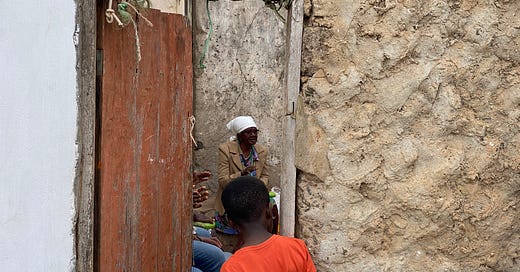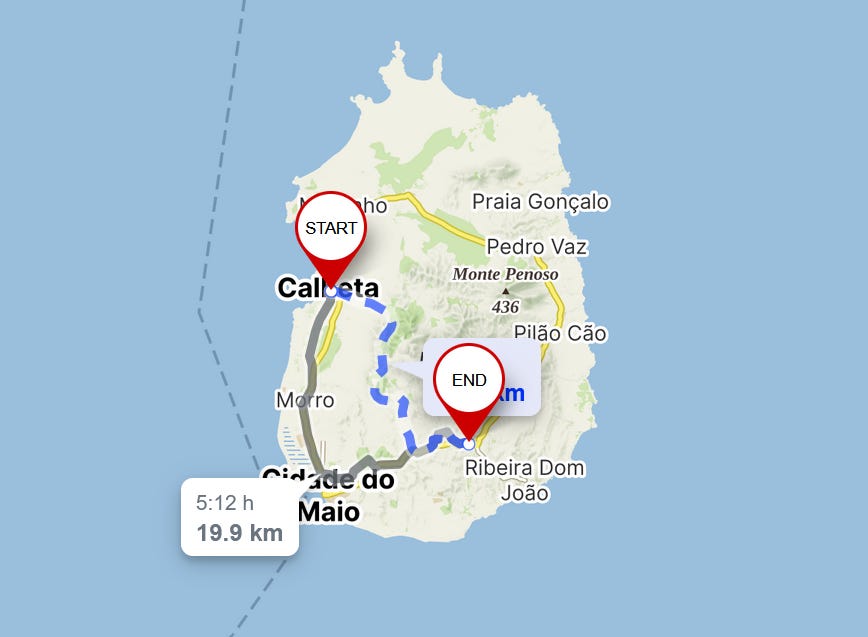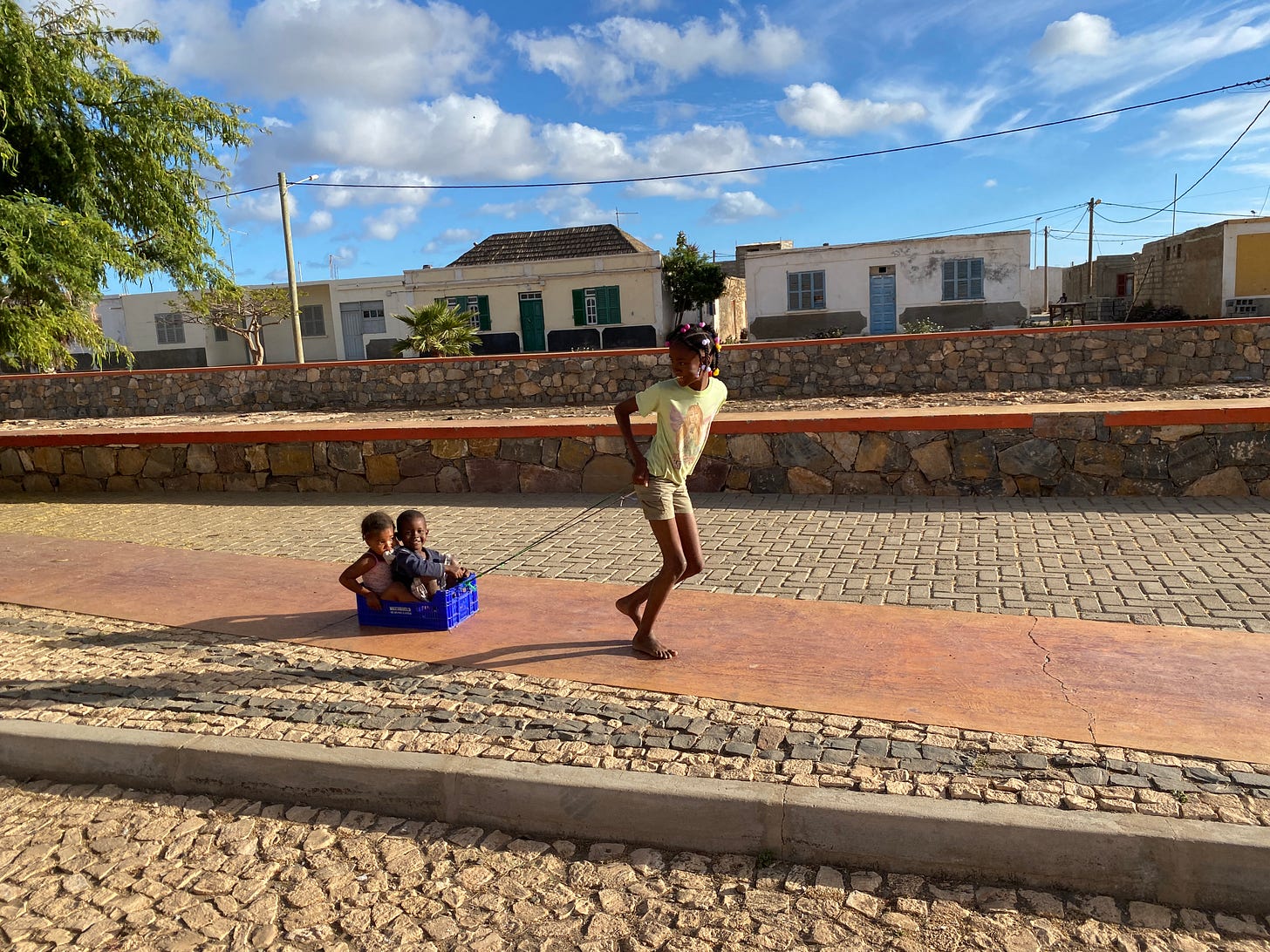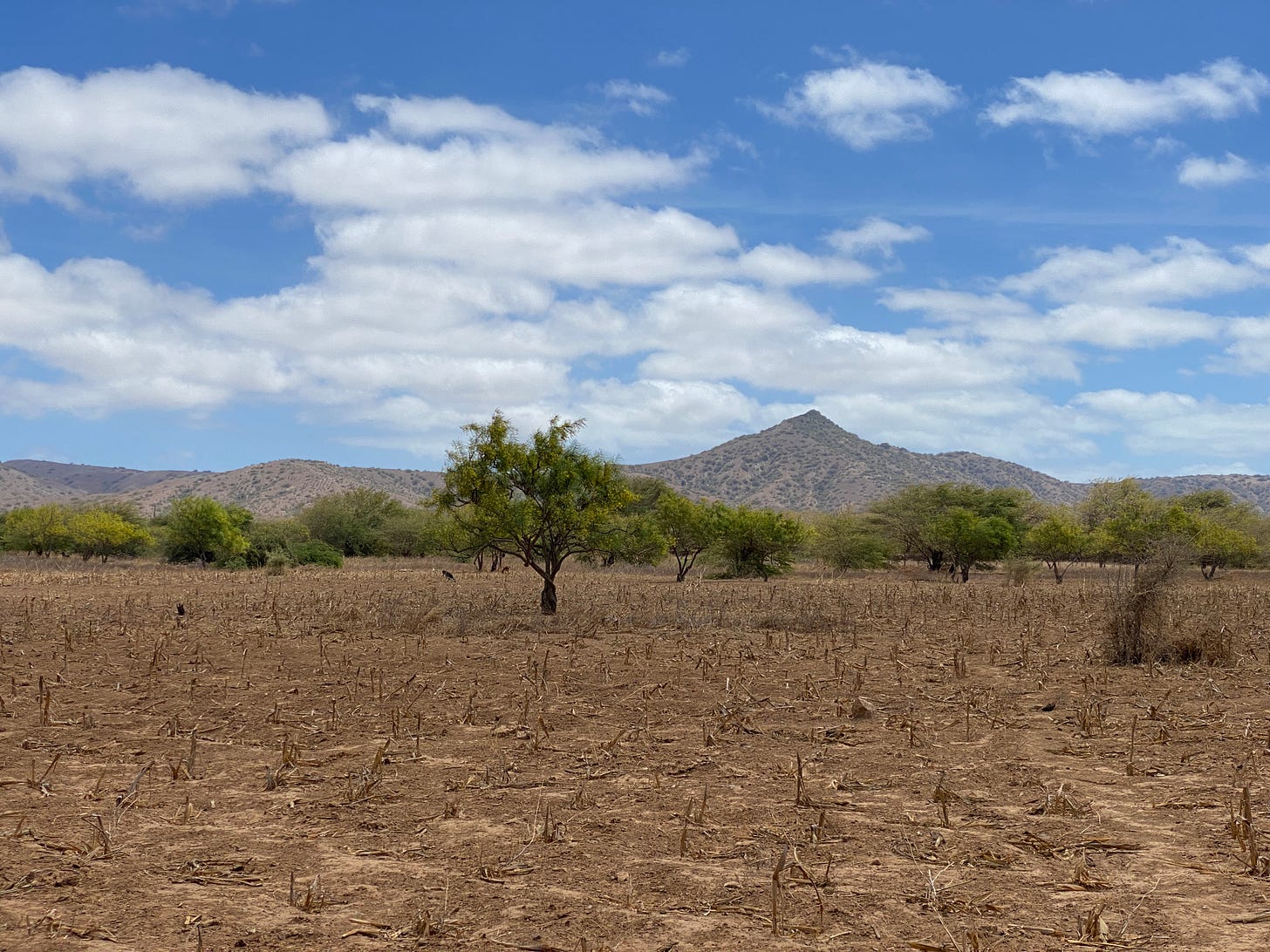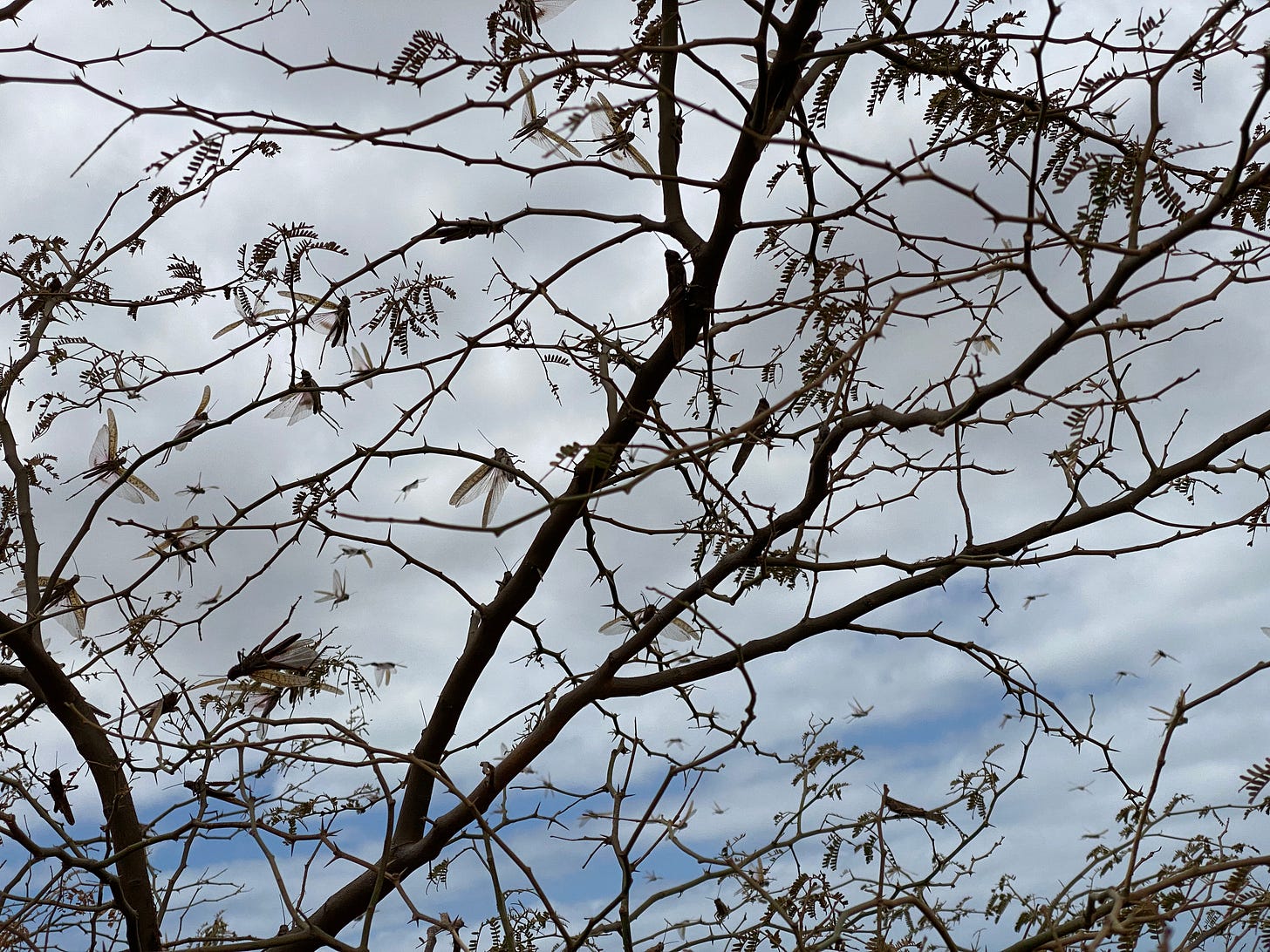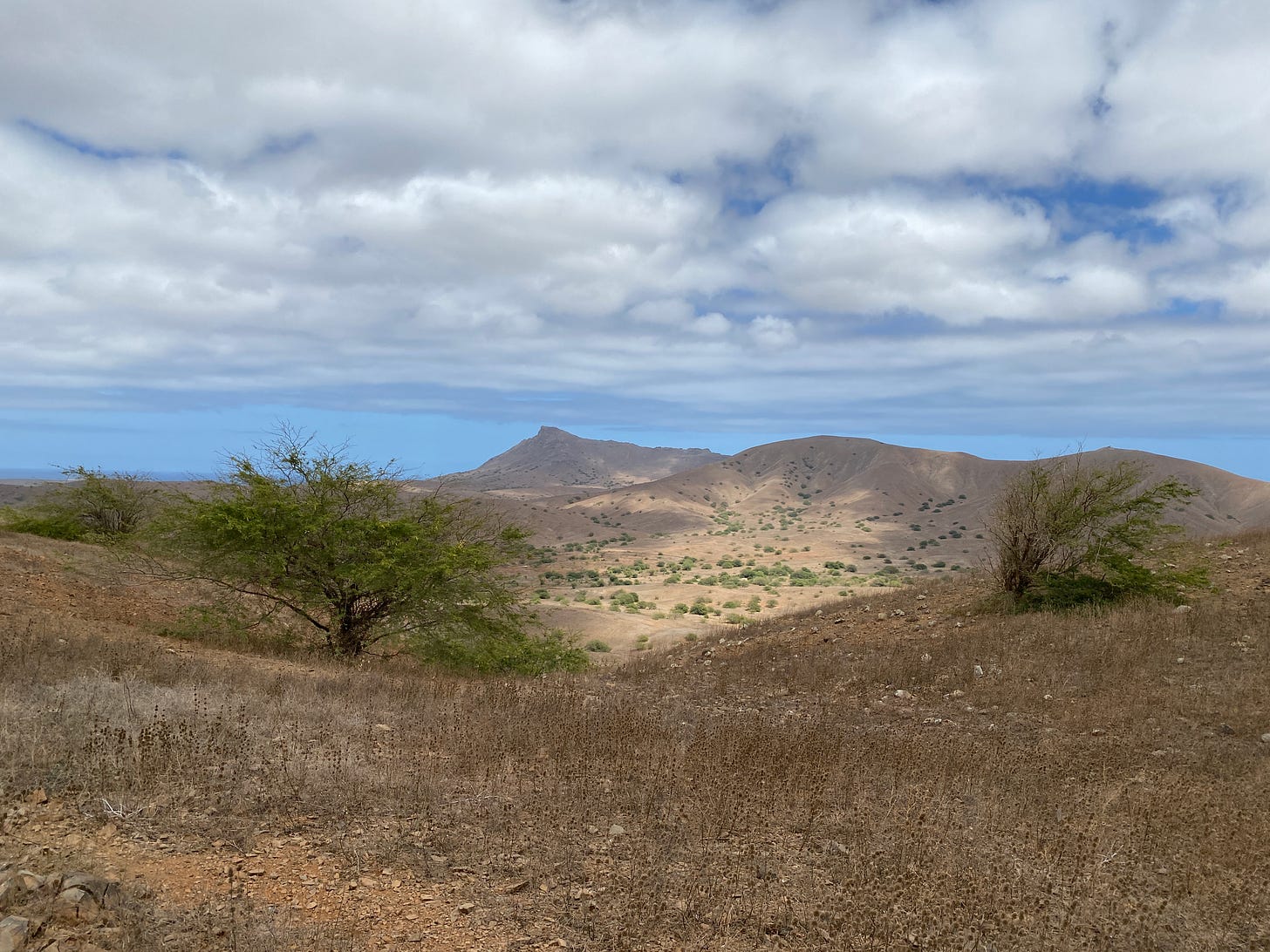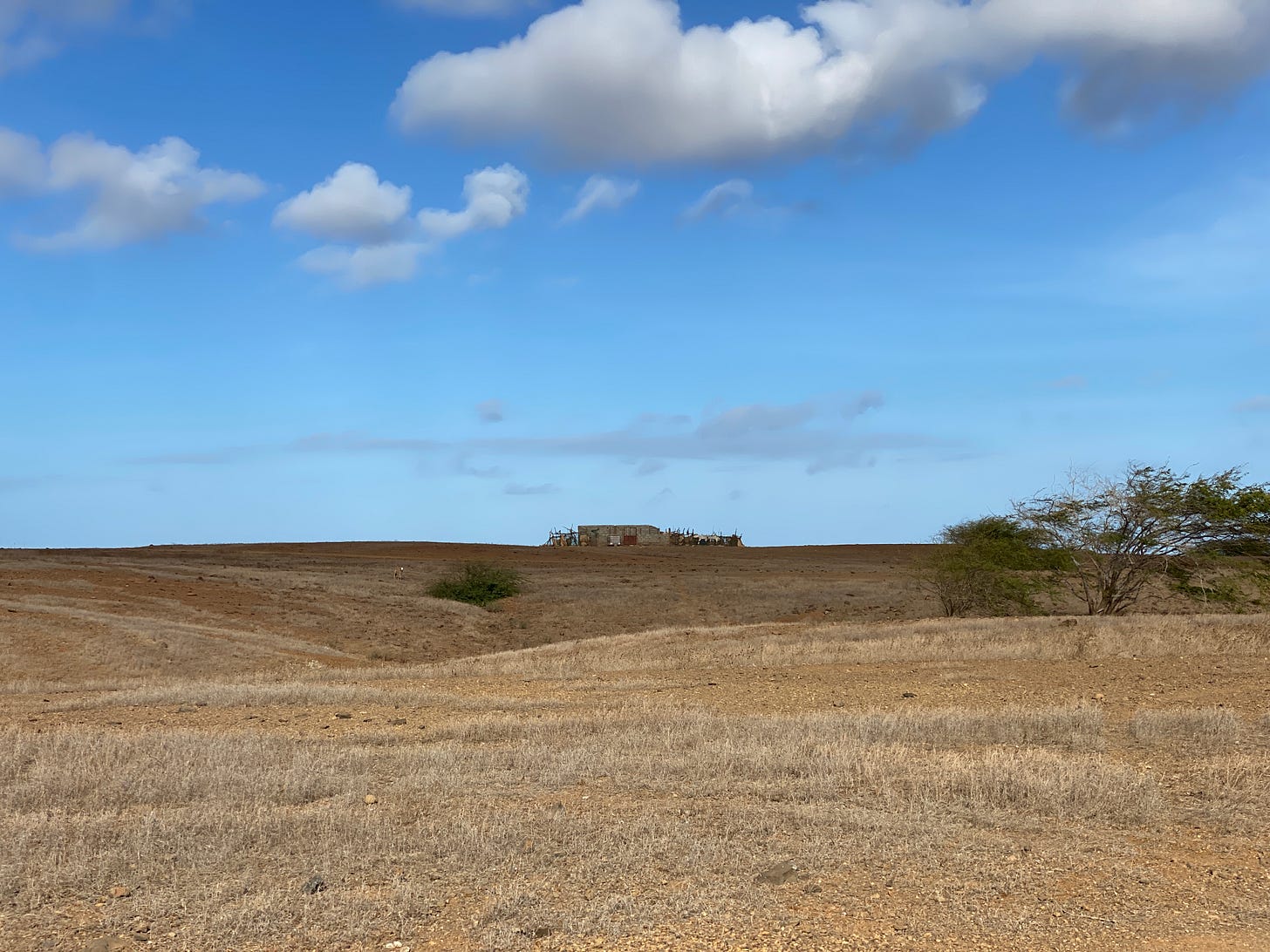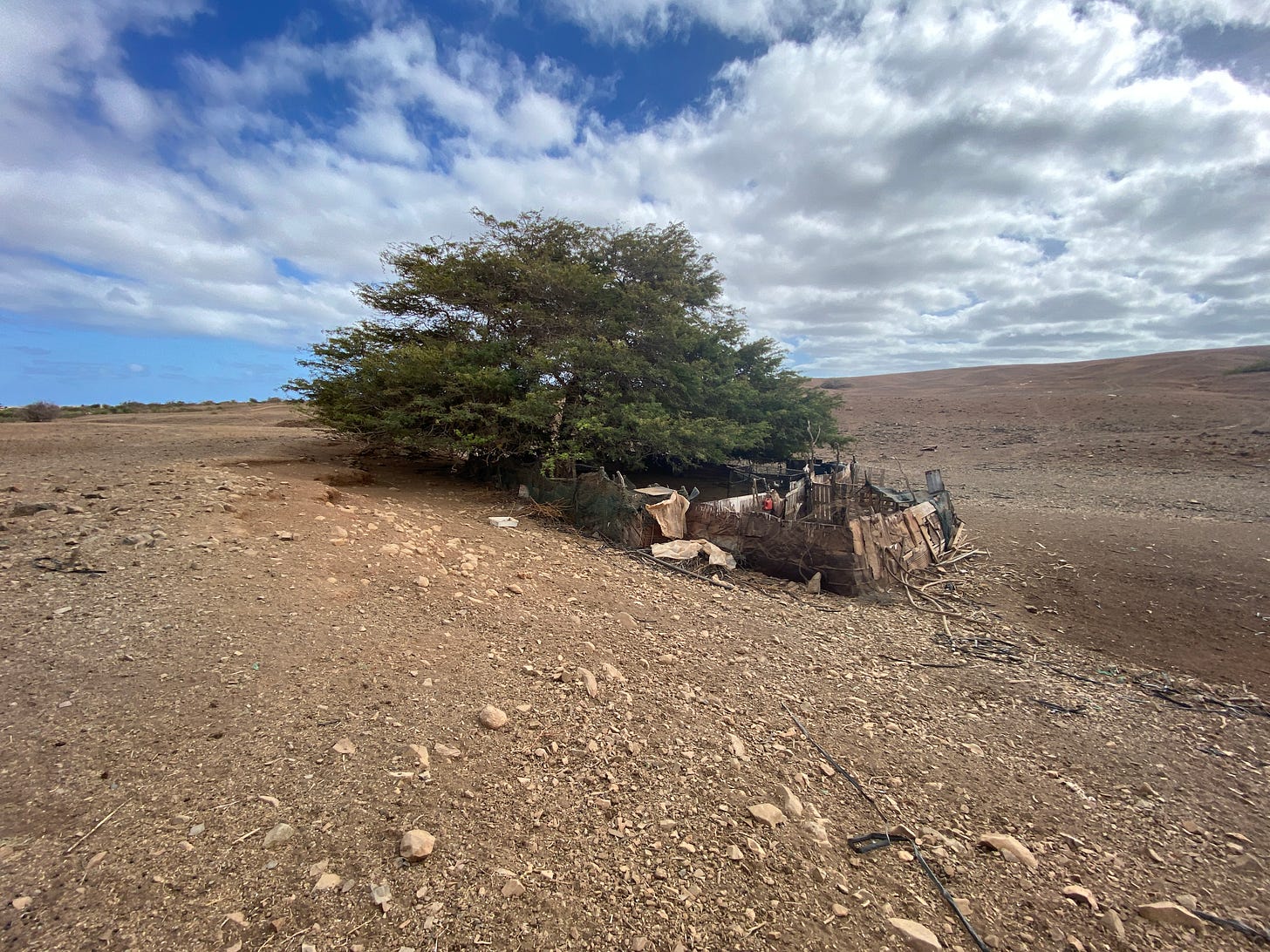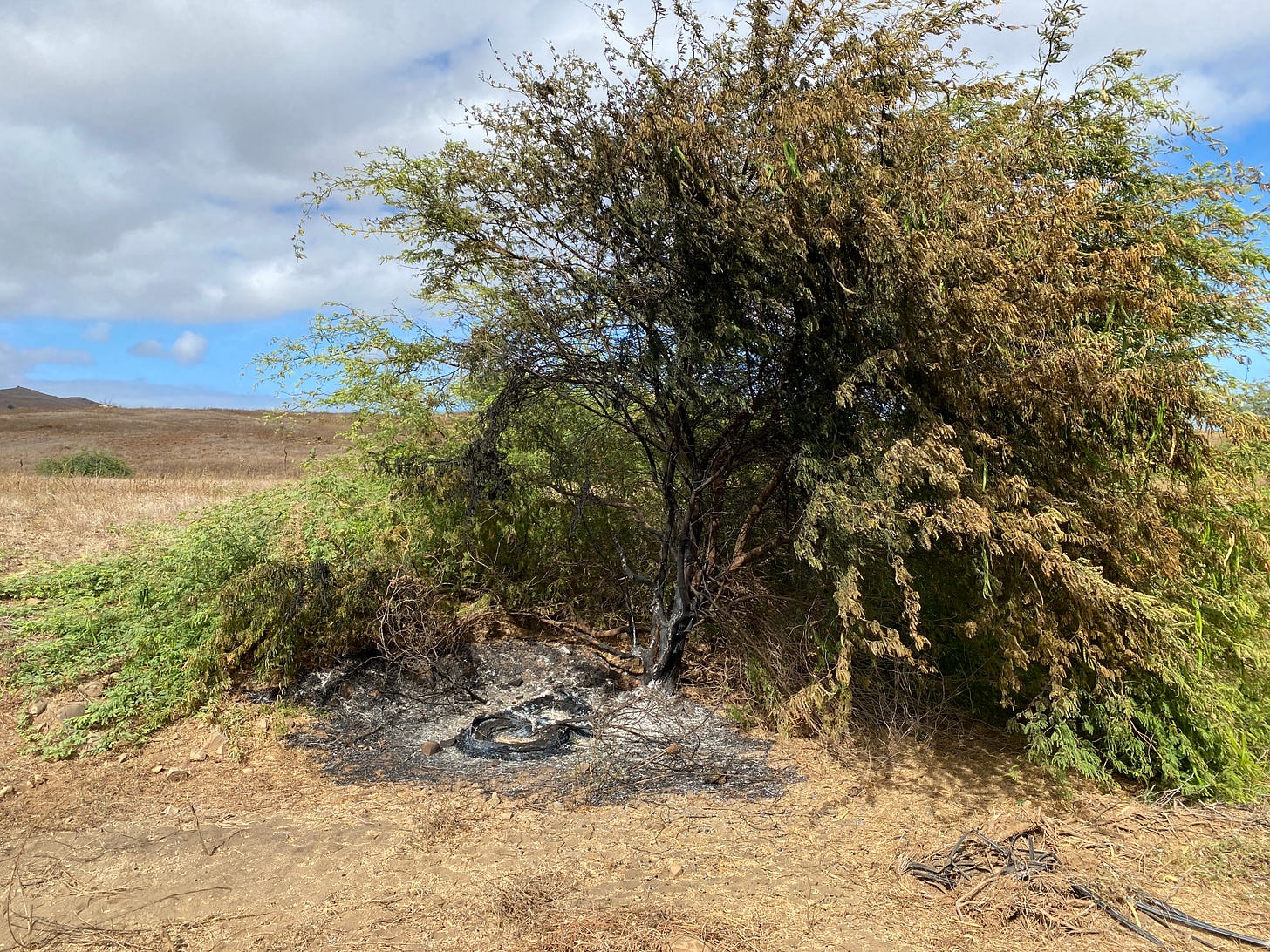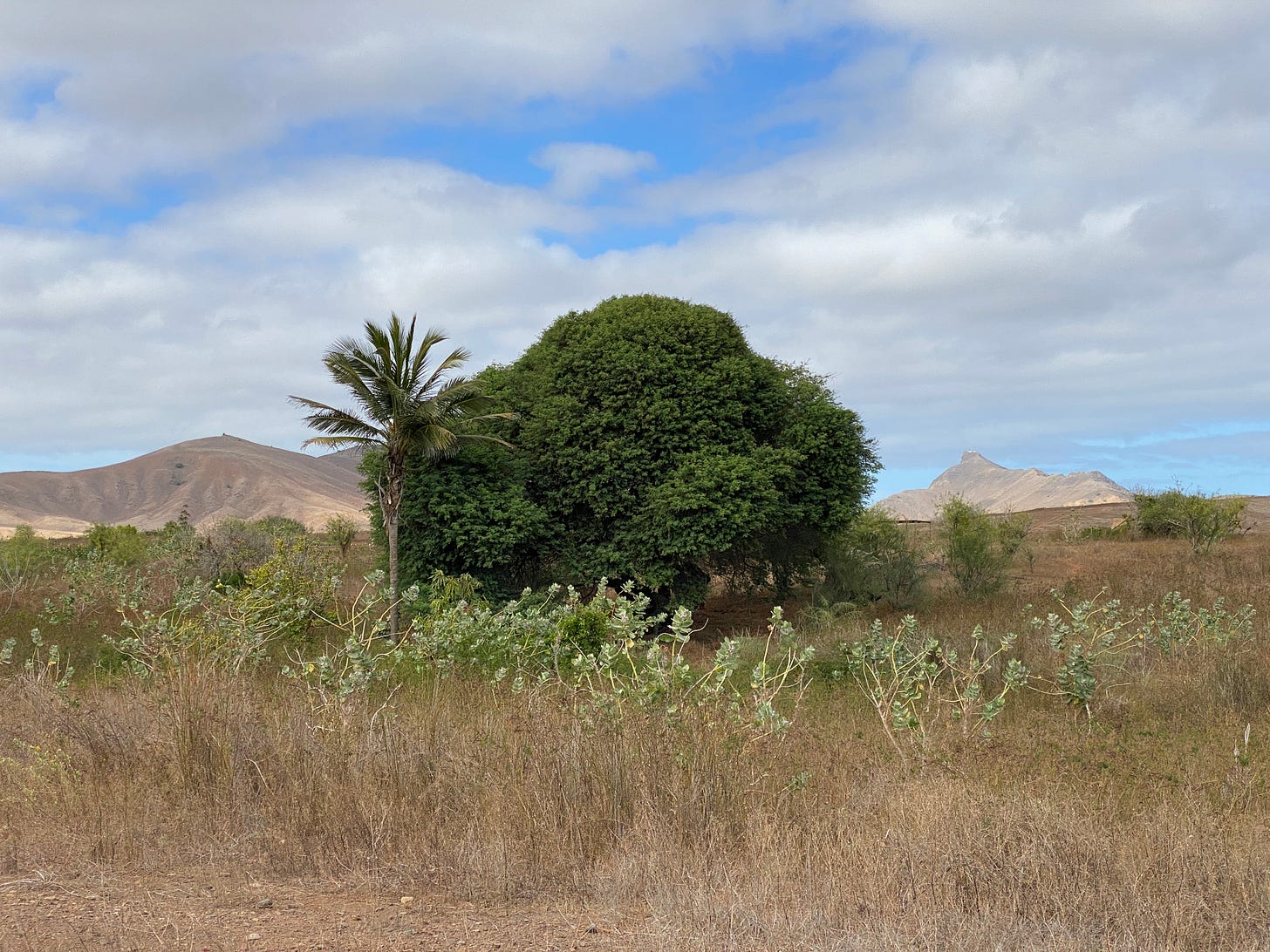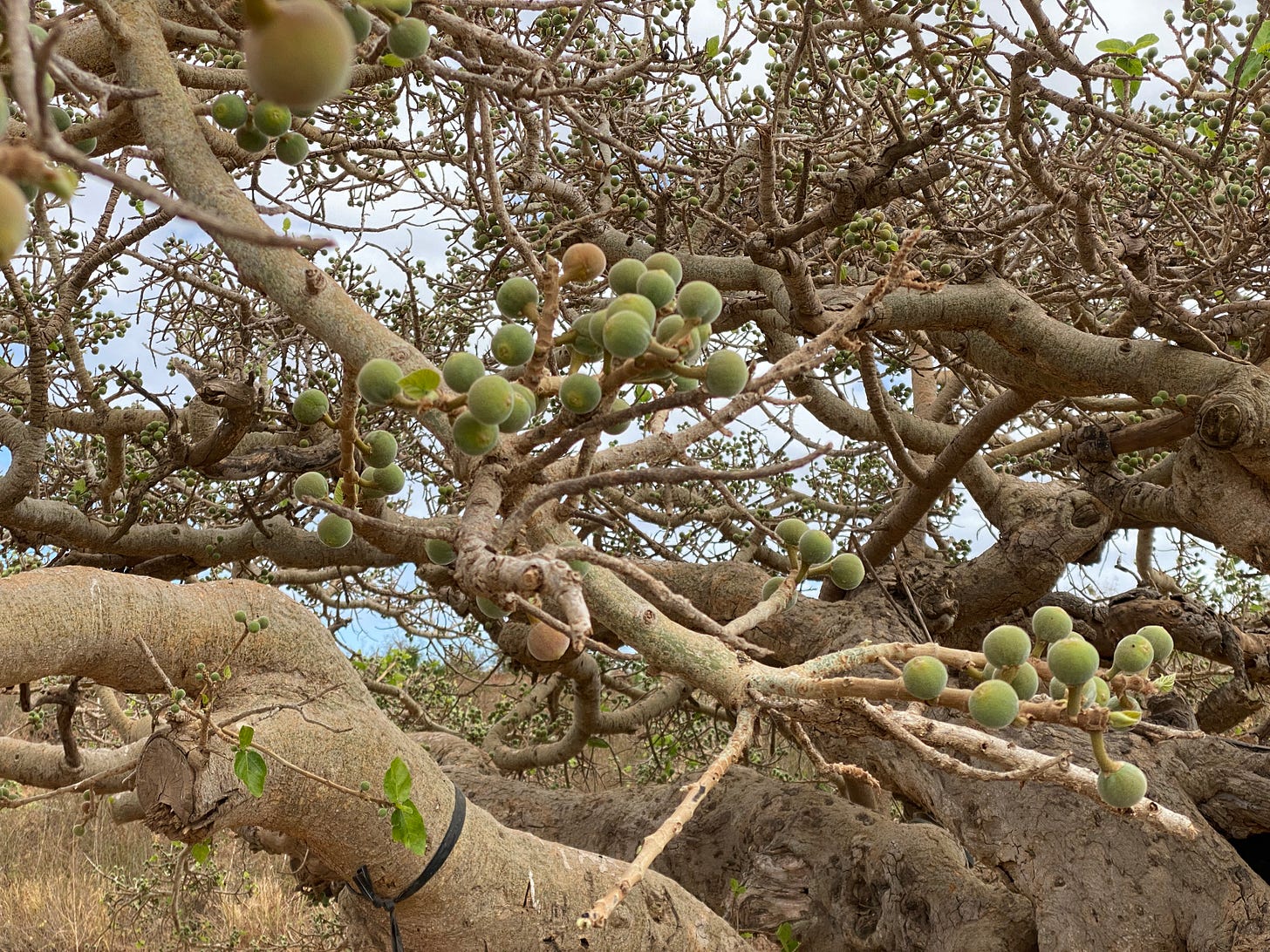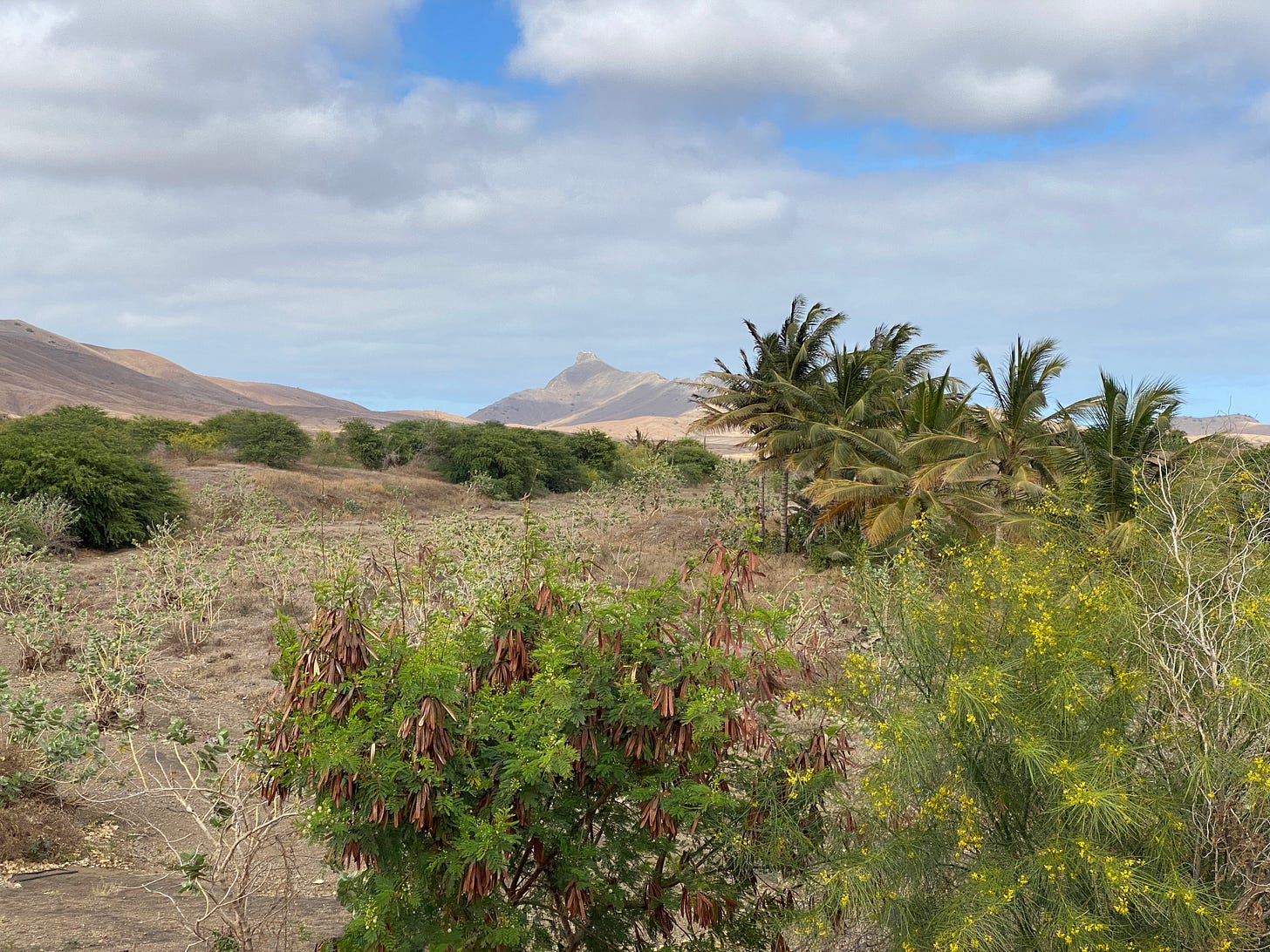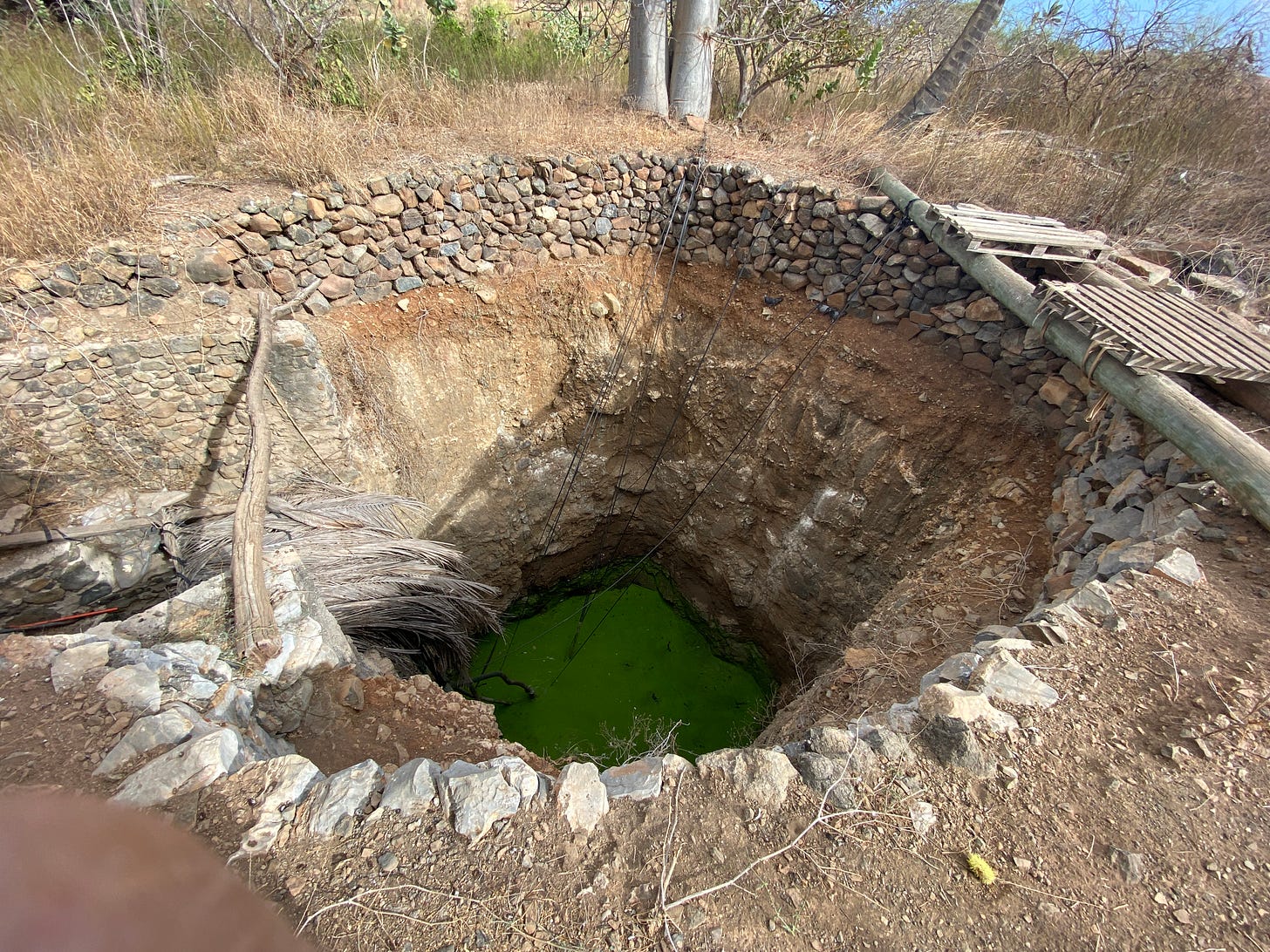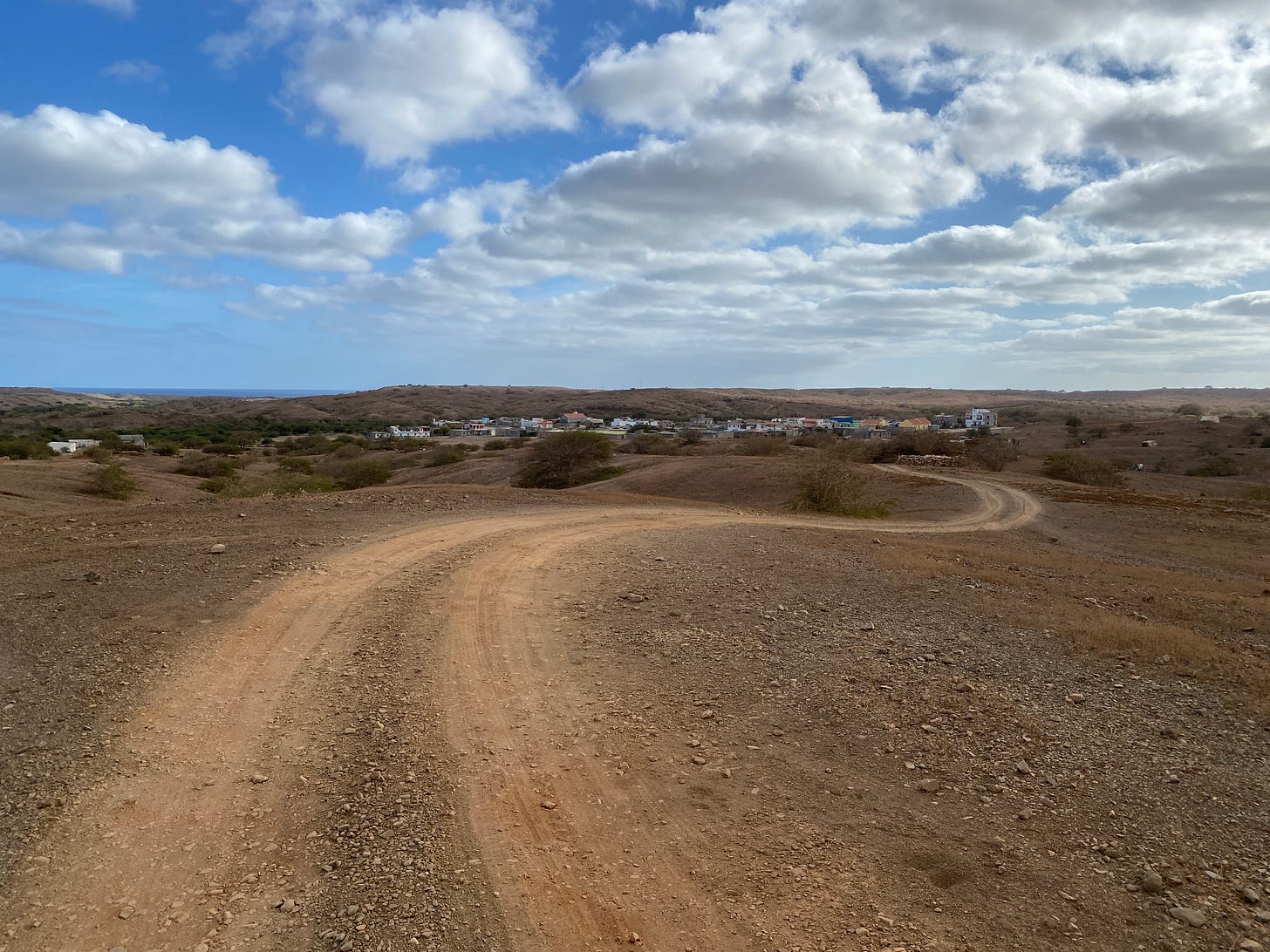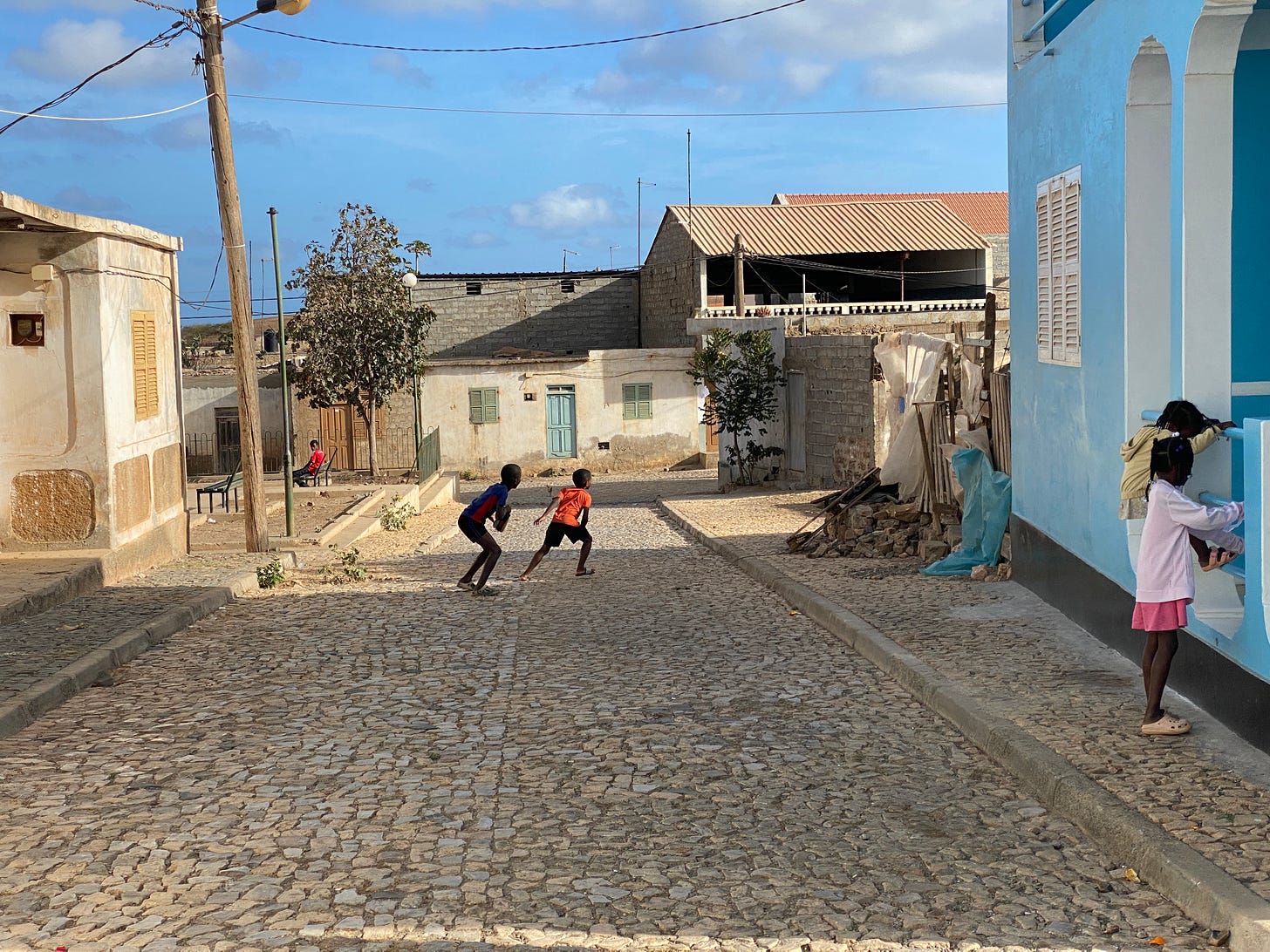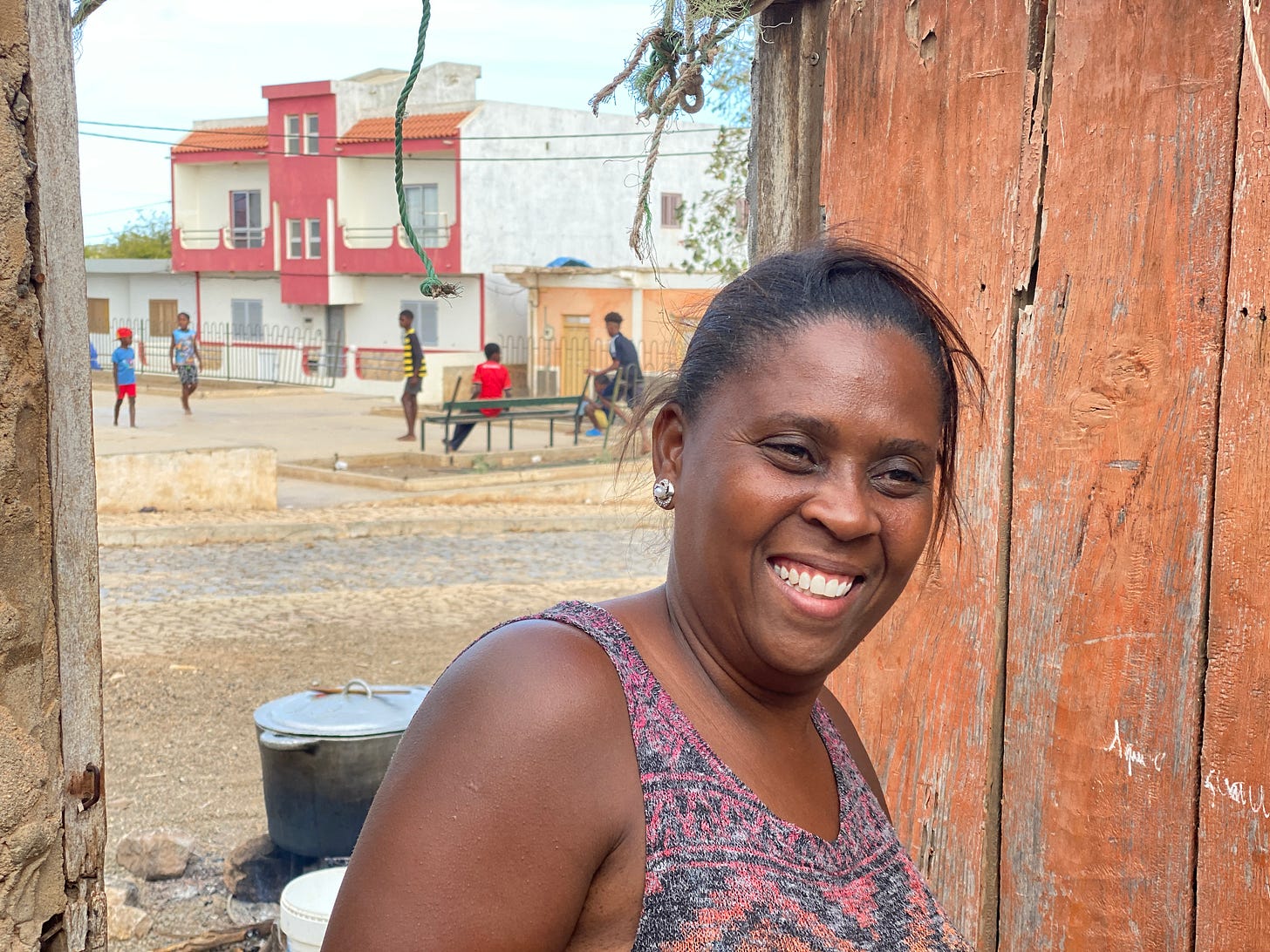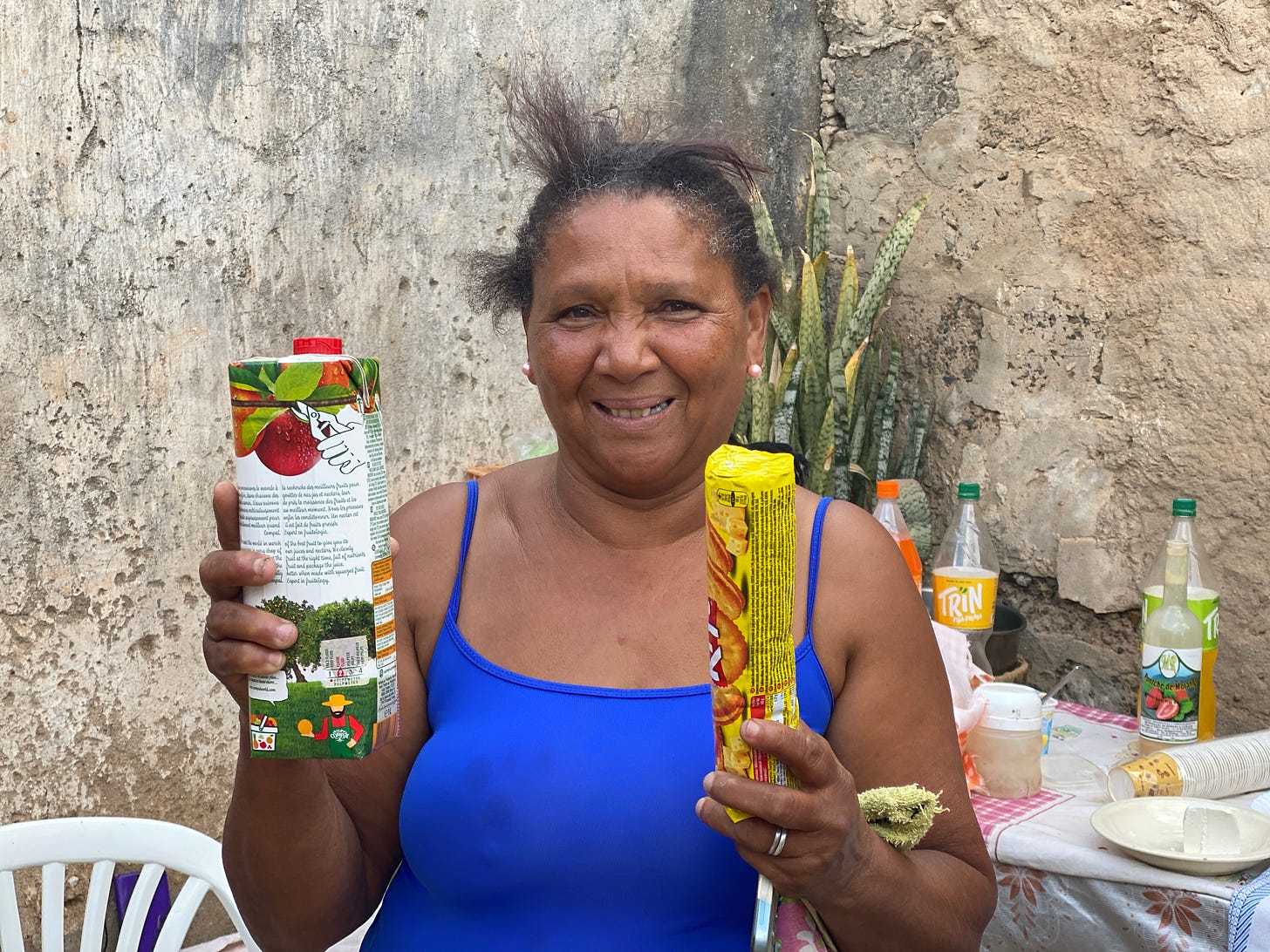We’re on Maio, a tiny and unassuming island off the coast of West Africa, where fishermen still sail by wind (see previous story). It’s dry, quiet, mostly empty. Few people visit. Which is exactly why we came.
One day, we decide to cross the island on foot. From Calheta to Figueira, our favorite map app, Mapy.cz, shows 20 kilometers—but that’s not the full story. We’ll walk straight over the mountain. No one does that. No paths, no trails. The apps don’t even try.
Let’s go!
We start in Calheta. We pass the center, waving hello to a handful of people sitting on the square and they wave back. Good that there is a bicycle path, kids found a way to use it.
We don’t expect to see any more people today. This is the way!
It is winter, so it is windy but not too hot. Perfect day for a hike. We follow dry pathway and into the bush, slowly negotiating the hill.
We occasionally see some animals. In one spot, there are huge swarms of locusts that have eaten most of the leaves of acacia they occupy —but the bush right next to it is untouched. No locusts, all green. God knows why.
Sometimes, surprised goats rise from the shade of the trees, stare at us for a moment, then rush away. There are also quite a few wild birds, similar to partridges. They make screechy noises and take off in heavy flocks, flying low. They seem so weighty they can only manage to fly downhill.
After a few hours we climbed qutite high. The very center of the island is peaceful and beautiful.
We then walk across a small plateau. Sometimes, sporadic refuges for domestic animals appear, but there are no people.
Sadly, most traces of human activity show clear signs of degradation nature. Near the man-made sheds there is no grass. Goats, pigs and cows contribute to the desertification.
Here, someone burned a tyre—and it set the bush around it on fire. Why would anyone do that? We see many places where nature seems neglected, even disrespected. It’s surprising, especially on an island with so little green to begin with.
But maybe Maio is a miniature image of our planet?
Isn’t it the same story on a global scale? Just when all our energy should be going into saving the Earth, it’s squandered—by two reckless figures: one waging the most stupid war, like his country didn’t have enough terrain, the other desperate to become the world’s loudest clown. Tragically, both are not alone, but products of their societies: the world’s most powerful nations.
By early afternoon, tired as dogs, we finally reach the valley of Figueira. The first thing we notice is the presence of green—scattered patches that suggest water must be nearby.
The green trees appear to be fig trees. That’s when it hits me: Figueira—of course! The village where figs grow.
In no time, directly from desert we enter into a tiny tropical paradise. A lot of green vegetation is here. We did not expect it.
We also find a well. This is the first time we see a well on Maio. Water is there indeed, but it is very deep.
Following the meandering riverbed, we approach the village of Figueira itself.
We finally meet some people. Figueira is nice. Here, like everywhere in Maio, house walls have colors.
We pass one household where life music is being heard. We are tired but … we turn right and follow the music. Behind the door…
Behind the door there’s a party! About fifteen persons, mainly women, neighbors and friends, are cooking, dancing and singing. We did not have to wait for an invitation, because the invitation was immediate. We are so fortunate… very tired and hungry.
We learn the reason for the party: 8th March, women’s day! And also, 8th March is Joana’s birthday. We give Joana fruit juice and crackers, because this is what we had in the backpack!
We make friends… we eat, rest and talk.
People don’t believe we came from Calheta. No one ever goes to Calheta on foot, across the mountain. We have cars!
I ask around who is who. Everyone here is from this or neighboring villages, except for one girl who lives in the island of Santiago and came to visit family.
Soon, the battucada starts. The real battucada. Women of Figueira play makeshift percussion which, I think, might be made of old vinyl chairs. It looks like the party has been waiting for us. There are many songs and many dances. I notice songs are partially improvised, in a very relaxed way. Like in many cultures, there is leader of a song (here called battucadeiro), and followers that join in the chorus. The women swap roles, and many of them initiate themes and then lead songs. People here like to sing. We listen mesmerized, we dance and we don’t want to leave.
Between the songs there is much food, there is joy and laughing. Conversations are simple, because we don’t know the language to ask complicated things. We share the moment. Here is a short recording.
Post Scriptum
Later towards night, we would hitchhike back to Calheta and get home after dark.
We did not know we were going to Figueira for a party. But like I said, in those desolate areas, when you meet someone it is often unexpected and special. The hike was nice, but it’s Joana’s birthday battucada that made our day.
Now, as a final word. In my story, did you find wink to a certain movie? Do you know which one? Hint: the plot is unfolding in Wales, UK. Drop a comment on my prestigious blog and become insanely famous.

